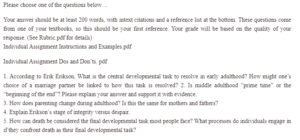Moral Issues and Virtues
In the selected case (Thinking Critically About Ethical Issues, Case 11 pp. 119-120), the sociologist and the people living in the urban slum are involved. The moral issue is the lack of disclosure of the identities of car theft syndicates by the researcher who discovered them. The relationship at stake is between the people living in the urban slum and the researcher. The sociologist displays her ethics of care by not sharing information on car theft rings. In the urban slums, syndicates run very deep; disclosing information about the syndicate members will cause havoc. The members of the car theft circle will hunt the people who gave the information to the researcher for revenge. Therefore, the researcher cared for the people living in the urban slum and the relationship she had built with them. The ethics of care supported her moral decision. According to Gilligan 1977, an ethical decision involves exercising a choice and taking responsibility for the selection. Accordingly, the researcher chose to overlook the information shared with her due to the ethics of care, and she willingly accepts responsibility for her choice, knowing the implications of the same choice.
References
Gilligan, C. (1977). In a Different Voice: Women’s Conceptions of Self and Morality. Harvard Educational Review, 47(4), 481-517. https://doi.org/10.17763/haer.47.4.g6167429416hg5l0
Ruggiero, V. (2014). Thinking critically about ethical issues (9th ed.). McGraw-Hill Education.
ORDER A PLAGIARISM-FREE PAPER HERE
We’ll write everything from scratch
Question
Please choose one of the questions below…

Moral Issues and Virtues
Your answer should be at least 200 words, with intext citations and a reference list at the bottom. These questions come from one of your textbooks, so this should be your first reference. Your grade will be based on the quality of your response. (See Rubric.pdf for details)
Individual Assignment Instructions and Examples.pdf
Individual Assignment Dos and Don’ts. pdf
1. According to Erik Erikson, What is the central developmental task to resolve in early adulthood? How might one’s choice of a marriage partner be linked to how this task is resolved? 2. Is middle adulthood “prime time” or the “beginning of the end”? Please explain your answer and support it with evidence.
3. How does parenting change during adulthood? Is this the same for mothers and fathers?
4. Explain Erikson’s stage of integrity versus despair.
5. How can death be considered the final developmental task most people face? What processes do individuals engage in if they confront death as their final developmental task?

